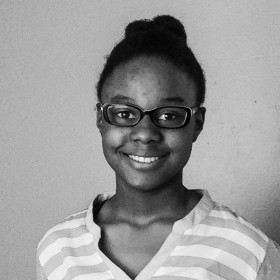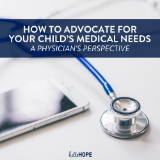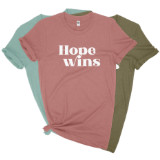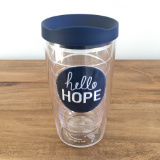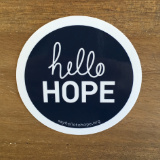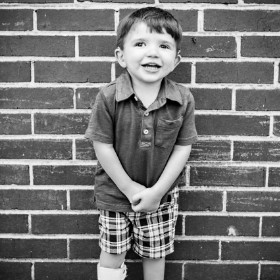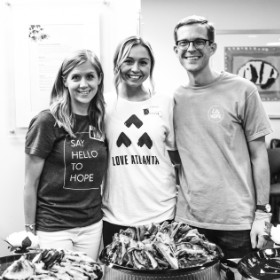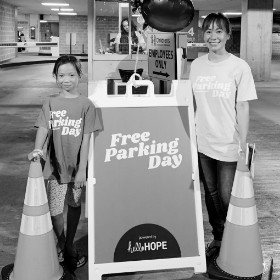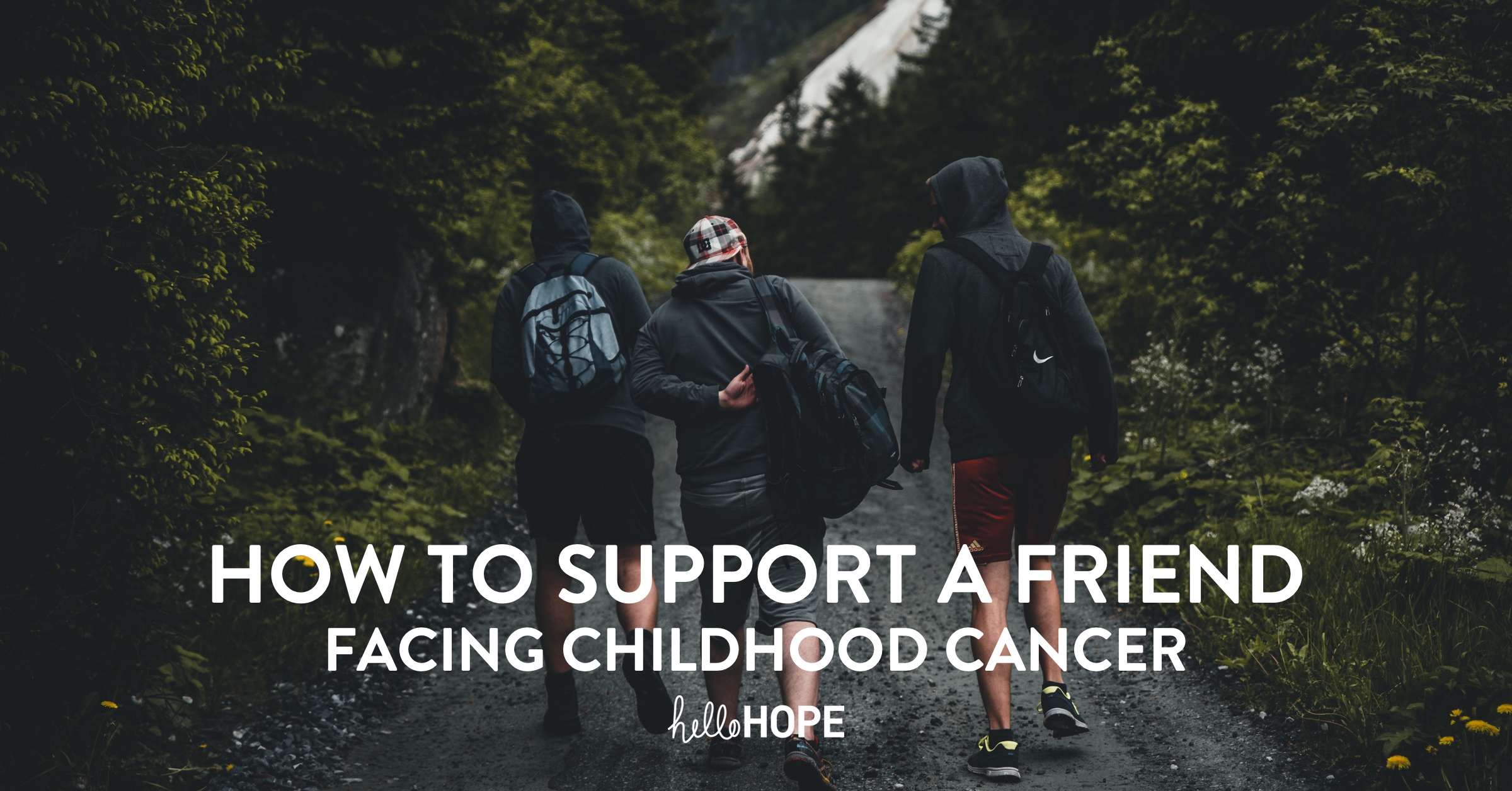How to Support a Friend Facing Childhood Cancer, a Q&A with Chris Woodruff
Childhood cancer can be a long and hard journey, and often creates needs that friends and family are unaware of, or unsure how to meet. We recently sat down with Chris Woodruff of Lighthouse Family Retreat to talk about what we can do to stand by families facing a childhood cancer diagnosis.
Chris is the executive director of Lighthouse Family Retreat, an organization that serves families living through childhood cancer. They offer helpful resources and restorative retreats where families have an opportunity to experience joy, rejuvenate relationships, and find hope in God.
HH: First of all, what are some things you should and should not say to a family facing childhood cancer?
CW: For one thing, parents don’t want to hear the word “sick” – instead, talk about their children being in treatment. For another, don’t try to solve the problems. I think people feel as if they’re supposed to offer solutions, but that’s not what the family needs.
What people also need to know is that you don’t have to always approach offering help or asking for updates. A lot of times being a friend just means listening to what they’re going through in treatment. They talk about it a lot because it’s all they’re doing and all they’re thinking about.
Many people stop coming around because they don’t know what to say anymore. Unfortunately, we hear that from families a lot – that after a year their circle of friends disappears. But what we also hear from these families is that they don’t need their friends to only talk about the cancer; they just want someone to come over and talk about football.
Yes, of course, you’re concerned about their child, but it’s also important to say, “Hey, do you want to get out of the house? Let’s grab mountain bikes or take a walk at the greenway. Let’s go watch basketball, or grab a beer and sit by the lake or something.” Whatever your friendship looked like before, keep offering those things.
HH: What would you say is the number one piece of feedback you get from the families you serve about how they need to be supported?
CW: The biggest thing that I’ve heard is they just want their friends present. Don’t disengage. It’s so easy to do! What we hear a lot from these parents is they get tons of help for the first six months, then, in a way – and I don’t think it’s anyone’s intention – their community gets desensitized to it. But it’s a journey. This year we have a family we’ve served for eight years, and they’re still in treatment.
This is a long process for any family, but it’s not really different from any other friendship. My wife and I have really close friends, and we stay in touch with their day-to-day lives. We will celebrate when their kids graduate from high school. It becomes part of our story, too – something that we will look back on and talk about together. It doesn’t have to be different when childhood cancer is a part of the story: you track with them, and when they get through it, you celebrate and take joy in seeing how far they’ve come. You’re a part of their journey.
HH: What are some common fears for friends of families facing illness?
CW: I sometimes see families who tell me that their friends are afraid to help with childcare because they don’t know anything about childhood cancer, and it worries them.
They don’t know if it’s contagious or if the child is fragile and they might hurt them.And a lot of people don’t realize that cancer is not necessarily terminal. When they think of cancer, they think of the worst, even in situations where the success rates are very high. If they have children, they may think, “I don’t know if I want my kids being that close to the chance of experiencing death.”
I think there’s also a fear of talking about things they don’t understand. People feel like they’re supposed to offer a solution versus just spending time together.
HH: What are some of the challenging elements in standing by a family facing childhood cancer?
CW: Again, it’s really understanding the fact that childhood cancer is typically a long journey. Everybody signs up for the pregnancy meal chain for two months, but this isn’t a two month process. Can you sign up to bring a meal once a week for the next two years? Can you commit to that? What these families need is folks to say, “We’re in it for the haul – not just the next three months, but for as long as you need.”
It’s also understanding that families facing childhood cancer are in a different world. They don’t have the same flexibilities and freedoms, and they need people to adapt to their world a little bit. They need someone willing to be inconvenienced to be their friend, because they’re going through a heck of a lot of inconvenience now, too.
It’s long and tiring, but just imagine how much longer and more tiring it is for them as they’re driving back and forth to hospitals and staying up late at night because someone’s getting a fever. It’s just carrying a little bit of that burden with them.
HH: Lastly, what would you say to encourage someone who is going through the emotional process of supporting a family facing childhood cancer?
CW: That this is who Jesus calls us to be: we’re called to care for those that are sick and hurting. Jesus never said it was going to be easy. This is when you’re needed the most. It’s hard. It’s digging in over and over again, like a marathon, and you may hit a wall. But eventually you will get over that wall. You have to push through it.
And rally the troops! It doesn’t always have to be just you. Get more people involved.
You also need to make sure that others are giving you support. You’re pouring a lot out, and you need to figure out who will pour into you. Look for ways that you can be filled up. Find where you get needed rest and rejuvenation so that you can continue to help your friends through a tough time.
Thank you to Chris for sitting down with us to share how we can care for families facing childhood cancer. Here's a link to learn more about their wonderful organization: Lighthouse Family Retreat.
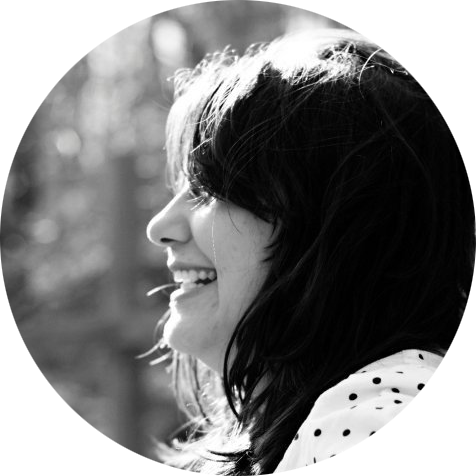
About the Author
Catie Cummings-Morris is a freelance author specializing in non-profit work and food writing living in Chattanooga, Tennessee, with her husband, daughter, and a vegetable garden.



